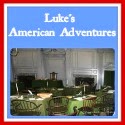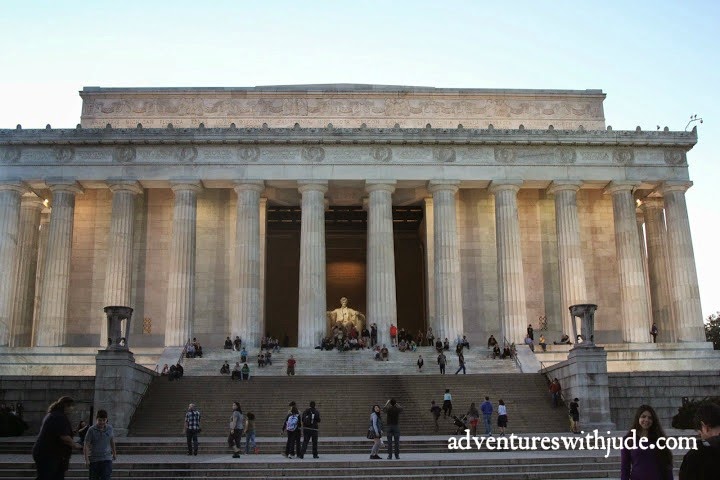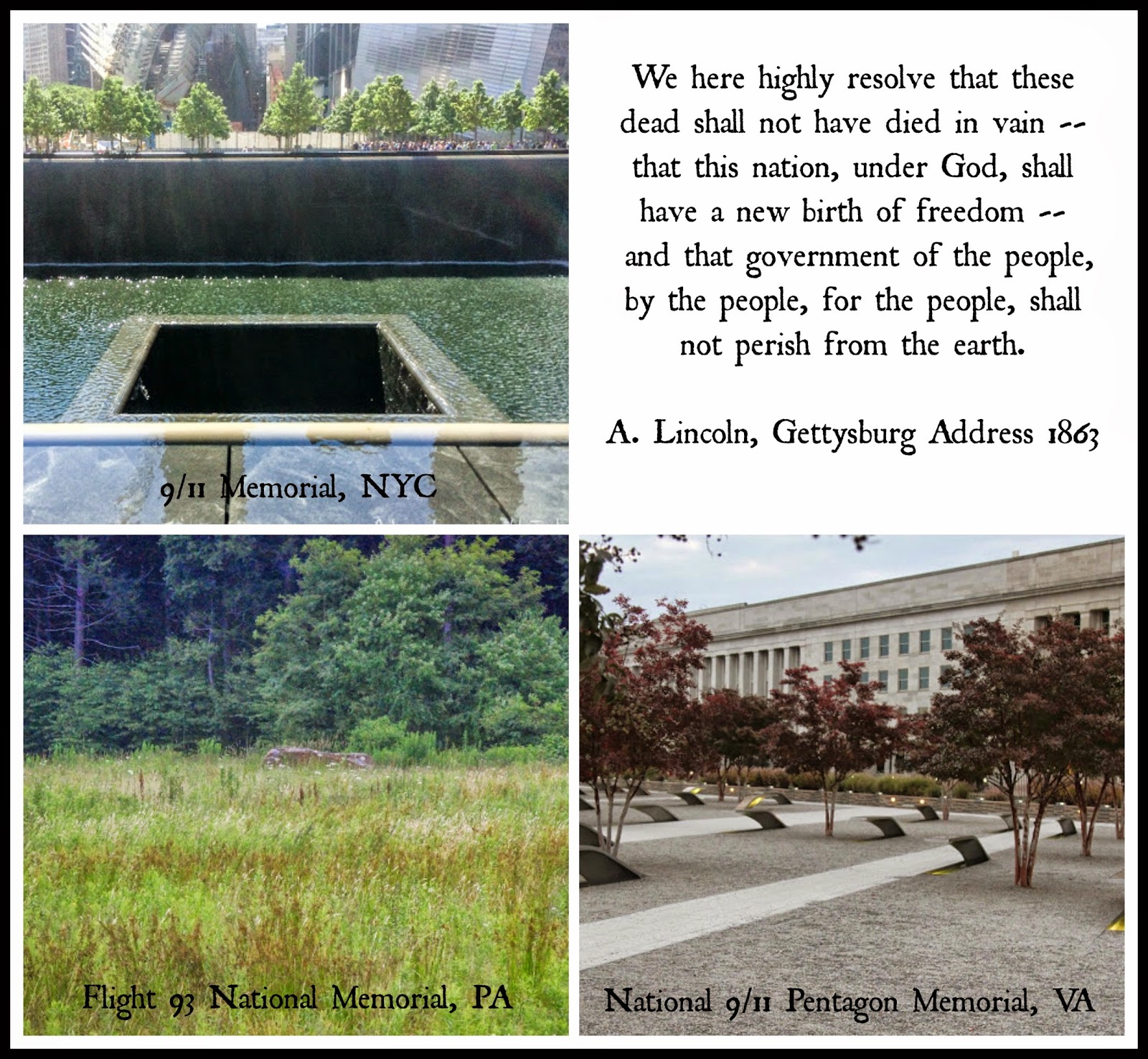There were three doctors in the theater - Charles Leale, Charles Taft, and Albert King - called to attend to the President. The head wound was mortal, and all they could do was to keep the President as comfortable as possible. Deciding it was too dangerous to travel back to The White House, they moved the President across the street to William Petersen's Boarding House. On the morning of April 15th, 1865, less than one week after the Civil War ended, the President died. Upon the declaration of death at 7:22 am, Lincoln’s Secretary of War, Edwin M. Stanton, uttered the phrase "Now he belongs to the ages.”
 |
| "Service on the Home Front" WPA Poster Louis Hirshman and William Tasker Wikimedia, via Library of Congress |
Lincoln’s Emancipation Proclamation is arguably the first step in modern civil rights movement. Followed by the 13th Amendment to the Constitution a year later, it established the legal equality of all men, regardless of skin color. Lincoln believed that all men were created equal, and all had the same God-given rights outlined by the Declaration of Independence. Unfortunately, the Reconstruction era was not kind to the freed slaves and their descendants; Frederick Douglass, a former slave and close friend to Lincoln, wrote in December of 1865, "I assume...had Abraham Lincoln been spared to see this day, the negro of the South would have had more hope of enfranchisement."(1)
One hundred years later, with much work still to be done to resolve the strife between races, Martin Luther King, Jr. stood at the foot of the Lincoln Memorial and gave his iconic “I Have a Dream” speech. King begins in the same manner as the Gettysburg Address:
Five score years ago, a great American, in whose symbolic shadow we stand signed the Emancipation Proclamation. This momentous decree came as a great beacon light of hope... (2)
Though there was more resolution to be found between people of different races, Lincoln began the discussion using his presidential powers to issue the Emancipation Proclamation (limited though it was) and ensure passage of the 13th amendment. It is oversimplifying to give Lincoln full credit, because as far back as 1776, there had been a desire to end slavery in America, and there is still a racial divide over 150 years later. However, it was Lincoln who put Continental Congressman and former President John Adams’ ideals into practice and opened the next chapter on the equality of the all men.
After Lincoln’s assassination in April 1865, Senator Charles Sumner of Massachusetts wrote of Lincoln’s Gettysburg Address,
That speech, uttered at the field of Gettysburg…and now sanctified by the martyrdom of its author, is a monumental act. In the modesty of his nature he said ‘the world will little note, nor long remember what we say here; but it can never forget what they did here.’ He was mistaken. The world at once noted what he said, and will never cease to remember it.”(3)
Lincoln did not forget that the men buried there had given their lives to the cause of freedom. Lincoln’s words continue to resound now. On September 11, 2011, the Gettysburg Address was read at the 9/11 Memorial Services (4), with an emphasis on the final sentence:
These few words from Gettysburg are simple, but endured through the ages. After 9/11, there was a nationwide resolution that the ideals of our nation would not be destroyed by terrorists, and that the thousands killed in New York, Washington, D.C. and Pennsylvania would never be forgotten.
Abraham Lincoln is arguably the embodiment of the American dream. Born into humble, near penniless beginnings and self-taught, often by firelight, he not only was elected to the highest office in the land but his legacy rivals that of many Founding Fathers. Lincoln delicately preserved the Union despite a frighteningly massive Civil War, abolished slavery, and began the task of rebuilding the nation before becoming the victim of an assassin's bullet. Through it all, he believed in the words of the Declaration of Independence - “all men are created equal,” and first words of the Constitution, “We the people.” His legacy can be found in his speeches: A House Divided, his first and second Inaugural Addresses, the Emancipation Proclamation and the Gettysburg Address. His long-ago written words as President continue to call us to be true Americans, and to remember exactly what we are despite our many ideological differences:
We are not enemies, but friends. We must not be enemies. Though passion may have strained, it must not break our bonds of affection. The mystic chords of memory, stretching from every battlefield and patriot grave to every living heart and hearthstone all over this broad land, will yet swell the chorus of the Union, when again touched, as surely they will be, by the better angels of our nature.
Work Cited
(1)
(2) King Jr., Martin Luther. "I Have A Dream." National Archives. The U.S. National Archives and Records Administration, 1963. Web.(3) "The Gettysburg Address" History Channel. A&E Television Networks, LLC, 2010. Web.
(4)The Gettysburg Address To Be Read at The 9/11 Commemoration" IIP Digital. U.S. Department of State, n.d. Web.
Abraham Lincoln Speaks:
Part 1: A House Divided
Part 2: The President's Job Description
Part 3: Liberty for All?
Part 4: A New Birth of Freedom
Part 5: With Malice Toward None
Part 6: Now He Belongs to the Ages

©2012- 2015 Adventures with Jude. All rights reserved. All text, photographs, artwork, and other content may not be reproduced or transmitted in any form without the written consent of the author. http://adventureswithjude.com
Abraham Lincoln Speaks:
Part 1: A House Divided
Part 2: The President's Job Description
Part 3: Liberty for All?
Part 4: A New Birth of Freedom
Part 5: With Malice Toward None
Part 6: Now He Belongs to the Ages

©2012- 2015 Adventures with Jude. All rights reserved. All text, photographs, artwork, and other content may not be reproduced or transmitted in any form without the written consent of the author. http://adventureswithjude.com






No comments:
Post a Comment